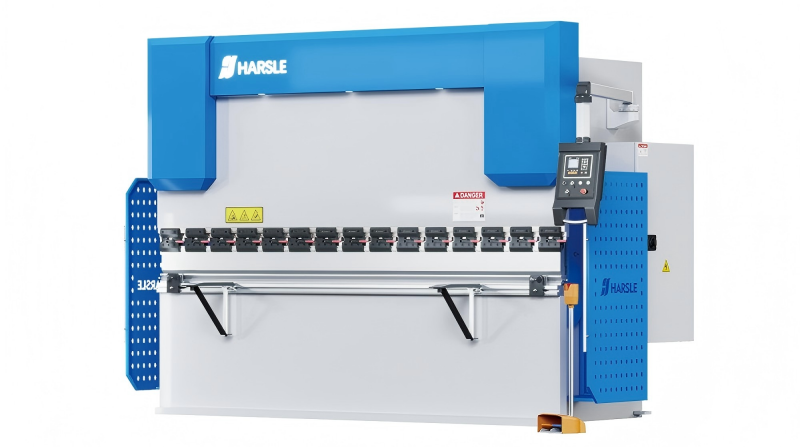Hub di documentazione
Manuali tecnici e guide complete per aiutarti a padroneggiare le macchine HARSLE e ottimizzare l'efficienza della lavorazione dei metalli
Quali sono le principali differenze tra presse piegatrici elettriche e idrauliche?
In questo articolo esplorerò le principali differenze tra elettrico e idraulico presse piegatriciAvendo lavorato a lungo con entrambe le tipologie, comprendo l'importanza di scegliere la macchina giusta per le proprie esigenze specifiche. Le presse piegatrici elettriche offrono precisione ed efficienza energetica, mentre quelle idrauliche presse piegatrici Offrono potenza e versatilità. Approfondendo queste differenze, il mio obiettivo è aiutarti a prendere una decisione consapevole nella scelta della pressa piegatrice più adatta alle tue esigenze. Iniziamo a comprendere i vantaggi unici che ogni tipologia offre!
Come elettrico pressa piegatrice sta diventando sempre più popolare, la maggior parte delle persone si chiede quali siano i vantaggi della pressa piegatrice elettrica rispetto alle comuni presse piegatrici idrauliche. Se si tiene in massima considerazione velocità e precisione, la pressa piegatrice elettrica sarà la risposta. Qui vi mostreremo tutti i confronti tra la pressa piegatrice elettrica e la pressa idraulica e otterrete maggiori informazioni dalle seguenti informazioni.
Introduzione
Nel mondo della lavorazione dei metalli, la scelta della pressa piegatrice giusta è fondamentale per garantire efficienza e precisione. Le due tipologie principali, presse piegatrici elettriche e idrauliche, offrono vantaggi e caratteristiche uniche. Comprendere le loro principali differenze può aiutarti a prendere una decisione consapevole e adatta alle tue esigenze specifiche.
Nel campo della lavorazione dei metalli, la scelta della pressa piegatrice giusta è essenziale per ottenere precisione ed efficienza. Le due tipologie principali, presse piegatrici elettriche e idrauliche, offrono ciascuna vantaggi distinti. In questo articolo, esplorerò le principali differenze tra queste due tecnologie per aiutarvi a prendere una decisione consapevole per le vostre attività.
Panoramica delle presse piegatrici elettriche

Le presse piegatrici elettriche utilizzano servomotori per azionare il processo di piegatura. Sono note per la loro efficienza energetica e i ridotti costi operativi. Queste macchine offrono elevata precisione e manutenzione minima grazie al minor numero di parti in movimento. Ideali per materiali più leggeri e piccole produzioni, le presse piegatrici elettriche offrono un funzionamento più silenzioso e tempi di ciclo più rapidi.
Panoramica delle presse piegatrici idrauliche

Le presse piegatrici idrauliche, invece, utilizzano il fluido idraulico per esercitare la forza. Questa tipologia è preferita per la sua capacità di gestire materiali più pesanti e lamiere più spesse, rendendola adatta alla produzione su larga scala. Le macchine idrauliche sono generalmente più potenti, consentendo una maggiore forza di piegatura e versatilità nelle applicazioni. Tuttavia, richiedono maggiore manutenzione e hanno un consumo energetico più elevato.
Differenze chiave
Le presse piegatrici idrauliche sono ideali per produzioni su larga scala e applicazioni pesanti.
Consumo energetico:
Le presse piegatrici elettriche sono più efficienti dal punto di vista energetico, con conseguenti costi operativi inferiori.
Le presse piegatrici idrauliche consumano più energia a causa del funzionamento della pompa idraulica.
Precisione e velocità:
I modelli elettrici eccellono in precisione e velocità, con tempi di ciclo più rapidi.
Le macchine idrauliche possono essere leggermente più lente, ma offrono una potenza elevata per i compiti più impegnativi.
Forza e capacità:
Le presse piegatrici idrauliche possono generare forze di piegatura notevolmente più elevate, rendendole ideali per materiali più spessi.
Le presse piegatrici elettriche sono più adatte per applicazioni più leggere.
Manutenzione:
Le presse piegatrici elettriche richiedono meno manutenzione perché hanno meno componenti idraulici.
Le presse piegatrici idrauliche necessitano di controlli regolari del fluido idraulico e delle guarnizioni.
Idoneità dell'applicazione:
Le presse piegatrici elettriche sono perfette per produzioni di piccole e medie dimensioni e per piegature di precisione.

Caratteristiche
| Precisione | Crea pieghe estremamente precise in pezzi complessi e delicati |
| Produzione | Capace di grandi produzioni che richiedono velocità |
| Materiale | Adatto a materiali costosi, poiché la piegatura precisa raramente provoca errori |
| Tonnellaggio | Disponibile solo nei modelli piccoli e medi, poiché le versioni elettriche non superano le 300 tonnellate |
| Tecnologia | I controlli CNC avanzati potrebbero inizialmente essere difficili da apprendere per alcuni operatori |
| Costo iniziale | Prezzo più alto rispetto ai modelli idraulici delle stesse dimensioni |
| Manutenzione | Praticamente nessuna spesa di manutenzione, soprattutto se usato correttamente |
Conclusione
Nella scelta tra presse piegatrici elettriche o idrauliche, considerate le vostre esigenze specifiche in termini di tipo di materiale, volume di produzione ed efficienza energetica. Entrambe le tipologie presentano i loro vantaggi, quindi comprenderne le principali differenze vi guiderà nella scelta della macchina più adatta alle vostre esigenze. Che diate priorità alla precisione o alla potenza, la pressa piegatrice giusta può migliorare i vostri processi di fabbricazione e aumentare la produttività.













